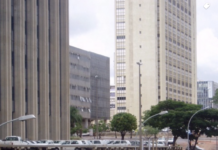http://www.formatex.org/micte2009
Abstracts submission deadline: 27 January 2009/ Early registration deadline: 15 January 2009
Invitation
Dear colleague,
It is our please to invite you to participate and submit abstracts to m-ICTE2009 in order to share your achievements in the field of ICT applied to education. m-ICTE2009 will be an opportunity to meet other researchers, make new contacts and discuss about innovative pedagogical practices and initiatives using technology that foster and transform the development of education, and check the state of the art in this field. m-ICTE2009 intends to consolidate a series of conferences, which started in 2002 and whose last edition was held in Seville (Spain) in 2006 and was attended for about 450 participants of nearly 60 countries.
If you were interested in submitting an abstract, please, click here
Publication
All authors of accepted abstracts (independently of the kind of presentation at the conference: oral, poster or virtual) will be able to submit a full paper to be considered for publication in the Conference Proceedings Book (paper length: 5 printed pages). The book will be distributed amongst all attendees during the Conference, and its whole content will be uploaded at the Conference website once the Conference has been held, as it was done in previous editions of the Conference:
The authors of the best research papers presented at the Conference will be invited to submit extended versions of their manuscripts for publication in some special issues of collaborating journals which will be announced later.
Key dates
– 15 January 2009: Deadline for early registration
– 27 January 2009: Deadline for abstracts submission
– 10 March 2009: Registration deadline for participants who will submit full papers to be considered for publication in the Proceedings Book
– 17 March 2009: Deadline for submission of full papers considered for publication in the Proceedings Book
Virtual participation
In addition to the oral and posters presentations, a Virtual Participation modality has been established for those researchers unable to attend the Conference personally. These kinds of participants will be requested to send “virtual papers”, which will be exhibited at the virtual participation online platform. These papers can be prepared using Power Point, Flash or similar software or recording videos. Please consult the conference website for details.
Topics
The conference program will be structured in 9 sessions, which will cover a wide range of topics:
1. Special Session: Development and Application of Web 2.0 Technologies for Educational Purposes
2. Special Session: Software Content Creation and Teaching and Learning Strategies in Science and Engineering
3. Special Session: e-Portfolios
4. Special Session: Medical e-Learning
5. General Aspects and Assessment of ICT use in Education
– Education and Globalization
– Ethical and Societal Aspects
– IPR and Copyright Issues
– Organizational, Legal and Financial Issues
– Gender and Diversity Issues in ICT Education
– Assessment of ICT use in Education
– Cultural Attitudes and Technology Acceptance
– Breaking the Digital Divide and Social Integration
– Technology Literacy and Assessment
– Lifelong Learning
– Quality Assessment
– Future prospects in ICT Education
6. Pedagogical Strategies in ICT Education
– Application and Assessment of Teaching/Learning Strategies
– Tutoring and Coaching
– Transferable Skills
– Pedagogy and Instructional Design
– Differentiated Instruction
– Effective Teaching Practices
– Innovative Teaching Practices Using Technology
– Problem Solving and Critical Thinking
– Instructional Strategies and Classroom Management
– Curricula
7. Methods and Environments for Education and Training
– Collaborative Learning
– Community Building
– Blended Learning
– Distance Education
– E-learning
– Mobile Learning
– Home Schooling
– Virtual Schools and Universities
– Emerging Learning Environments
8. Educational Software/Webs Experiences
– Best Practices and Case Studies with Educational Software/Webs
– Language Learning Innovations
– Digital Storytelling
– Serious Games
– Education for Students with Special Requirements
– User-generated Contents
– Educational Experiences Using Open Source Software
9. Technologies in the Service of Education
– Virtual Learning Environments (VLEs)
– Managed Learning Environments (MLEs)
– Learning Management Systems (LMS)
– Computer-Mediated Communication (CMC) Tools
– Intelligent Tutoring Systems (ITS)
– Courseware Development
– Authoring Tools
– Virtual Laboratories
– Learning Objects
– Ontology-based Learning Resource Repositories
– XML Schemas and the Semantic Web
– Web Development and Applications
– Multimedia/Hypermedia
– Emerging/Innovative Technologies
– Advanced Distributed Learning (ADL) Technologies
– Architecture of Educational Information Systems Infrastructure
– Emerging Standards, Microformats
– Computer Networking, Systems and Related Issues
– Security and Data Protection
– Support and Maintenance
– New User Interfaces and Adaptive Technologies
– Human-Computer Interaction
– Artificial Intelligence
– Educational Robotics
– Virtual Reality
– Mobile/Wireless Technologies
– Digital Libraries
For any questions or suggestions, please do not hesitate to contact us at micte2009@formatex.org
We would also appreciate if could disseminate this Call for Papers through your Department or Institution.
We look forward to seeing you in Lisbon.
Aurora Solano
m-ICTE2009 Secretariat
FORMATEX Research Center
e-mail: micte2009@formatex.org
http://www.formatex.org/micte2009
Phone: +34 924 25 86 15
Fax: +34 924 26 30 53








 Dr. Tony Bates is the author of eleven books in the field of online learning and distance education. He has provided consulting services specializing in training in the planning and management of online learning and distance education, working with over 40 organizations in 25 countries. Tony is a Research Associate with Contact North | Contact Nord, Ontario’s Distance Education & Training Network.
Dr. Tony Bates is the author of eleven books in the field of online learning and distance education. He has provided consulting services specializing in training in the planning and management of online learning and distance education, working with over 40 organizations in 25 countries. Tony is a Research Associate with Contact North | Contact Nord, Ontario’s Distance Education & Training Network.


[…] used Web 2.0 tools as a way to build community and relationships, cross promote products V International Conference on Multimedia and ICT in Education (m-ICTE2009), Lisbon (Portugal), 22-24… – tonybates.ca 12/11/2008 http://www.formatex.org/micte2009 Abstracts submission deadline: 27 […]